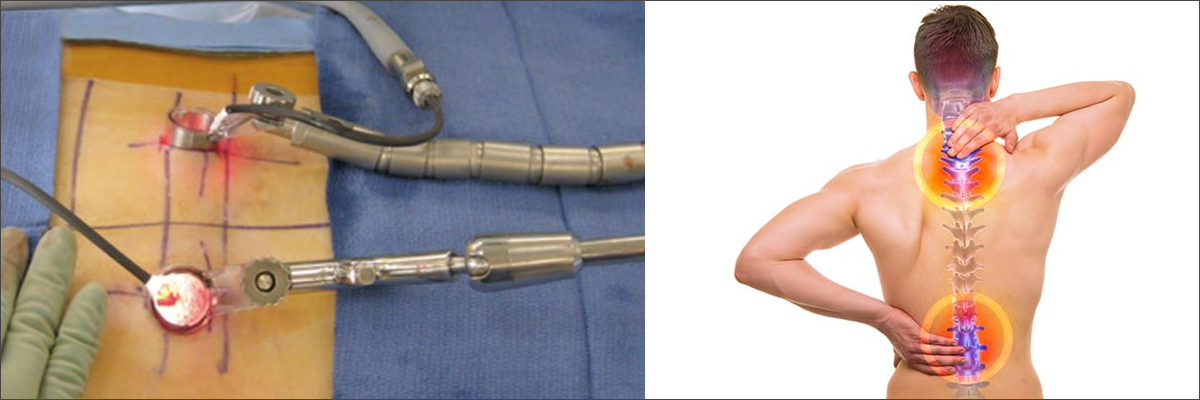
Minimal Invasive Spine Surgery

What is minimally invasive spine surgery?
Minimally invasive spine surgery (MISS) is a type of surgery on the bones of your spine (backbone). This type of surgery uses smaller incisions than standard surgery. This often causes less harm to nearby muscles and other tissues. It can lead to less pain and faster recovery after surgery.
The standard method of spine surgery is called open surgery. This uses a long incision down the back. The muscles and soft tissue around the spine would need to be moved away. In some cases, tissue would need to be removed.
During MISS, the healthcare provider makes a smaller incision. He or she then inserts a device called a tubular retractor. This is a stiff, tube-shaped tool. It creates a tunnel to the problem area of the spine. It gently pushes aside the muscle and soft tissue around the area. The surgeon can then put small tools through the tunnel to work on the spine. The surgeon also uses a special operating microscope and views real-time X-ray images of the spine.
Surgeons can use MISS for some types of spine surgery. These include lumbar discectomy, laminectomy, and spinal fusion.
Why might I need minimally invasive spine surgery?
Most people who have back pain will not need surgery. Your healthcare provider might advise spine surgery if you have a back problem that hasn't gotten better with another treatment, such as medicine or physical therapy. If you still have a lot of pain, surgery on your spine might fix the problem. Spine surgery can’t fix all types of back problems, though. Your healthcare provider will only advise spine surgery if you have a type of problem that surgery may help. This includes conditions such as:
- Herniated disc
- Spinal stenosis (narrowing of the spinal canal)
- Spinal deformities (like scoliosis)
- Spinal instability
- Spondylolysis (a defect in a part of lower vertebrae)
- Fractured vertebra
- Removal of a tumor in the spine
- Infection in the spine
If you are thinking about spine surgery, ask your healthcare provider if MISS is a choice for you. Not all types of spine surgery can be done with MISS. And not all hospitals or other surgery facilities are equipped for MISS.
What are the risks of minimally invasive spine surgery?
Every surgery has risks. The risks of minimally invasive spine surgery include:
- Infection
- Excess bleeding
- Pain at the graft site
- Nerve damage
- Blood clots
- Complications from anesthesia
- Leaking of spinal fluid. This may cause headaches or other problems.
- Not enough relief of your back pain
Your own risks may vary according to your age, your general health, and the type of surgery you have. Having the surgery at a facility that is experienced in the method can help lower your risks. Talk to your child's healthcare provider about the risks that most apply to you.
Testimonials
What Patients Says!
“ Dr Shubhanshu , is reachable in emergency too, I was experiencing pain in hand , i got earliest appointment ,and immediate treatment with care from him.Sir i am thankful of u for ur support system to bring back confidance of me with pain relief. ”
Mangesh Pendharkar
“ He is good consultant 👍 ”
